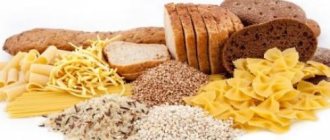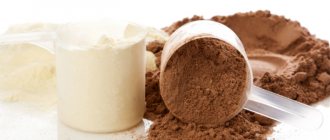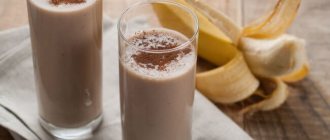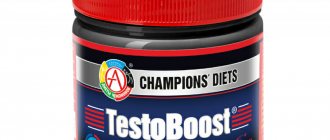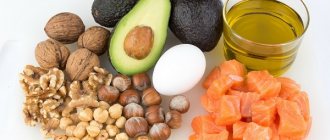Slow carbohydrates
Slow or complex carbohydrates contain 3 or more molecules of simple sugars . This type of carbohydrates usually includes: starch, inulin, glycogen, cellulose, dextrin. Most complex carbohydrates are found in grains, beans, potatoes and other vegetables.
Metabolic processes with carbohydrates
Carbohydrates are metabolized in three ways:
- Due to glycogenesis - the formation of glycogen from simple sugars (glucose).
- Due to gluconeogenesis - the formation of glucose in the liver and kidneys from proteins, lactate and glycerol.
- Through glycolysis - the decomposition of glucose molecules to produce the required amount of energy.
Metabolic processes involving carbohydrates are regulated by the concentration of glucose in the circulatory system . The amount of glucose or carbohydrates in the blood depends on the composition of the food consumed. As a rule, the lowest glucose level is observed after waking up, after 7-8 hours of sleep.
Autonomous nutrition of the body during prolonged fasting occurs for the most part through the processes of glycolysis and gluconeogenesis. Immediately after rising, the body is in optimal condition to use stored fat. Therefore, to lose weight, it is recommended to engage in aerobic activity almost immediately after waking up .
The first hours after waking up are accompanied by the production of the maximum amount of catabolic hormones, in particular cortisol. The peak concentration of growth hormone decreases closer to 6-7 o'clock in the morning, by 8-9 o'clock cortisol is at its maximum maximum values.
Carbohydrates for athletes
In an ordinary person with normal health, the formation of a reserve of carbohydrates in the form of muscle glycogen is observed when eating a large amount of carbohydrates 4-6 hours after getting up. At the latest time, the body’s ability to store carbohydrates decreases. Therefore, it is recommended to consume large amounts of carbohydrates before 15:00 in the afternoon as the concentration of protein in food increases .
The daily diet should consist mostly of carbohydrates . In sports, it is necessary to consume carbohydrates in the amount of 50-60% of the total calorie intake.
In order to rationally draw up a carbohydrate consumption plan, the glycemic index value is used. High values of this indicator in any of the products indicate a high jump in insulin in the blood, since products with a high index contain the maximum amount of glucose (the glycemic index of table sugar is 100). In addition, products with a high sugar content are quickly converted into fatty tissue.
People with a full physique who want to lose weight need to consume foods with low glycemic index values. Products containing simple sugars are allowed to be consumed immediately after completion of exercise, but only if the goal is to increase muscle volume. During this period of time, the body’s ability to accumulate carbohydrates in the form of glycogen increases along with the increased “absorption” of amino acids into muscle tissue. The task of an athlete who wants to build muscle mass is to consume food rich in carbohydrates and proteins for rapid muscle growth due to the production of anabolic hormones.
Almost every food product contains a sufficient amount of carbohydrates, from oatmeal to any other carbohydrate product. In the digestive tract, carbohydrates are converted into glucose, which is transported through the bloodstream and serves as a source of energy for nerve tissue. If neurons in the brain do not receive the required amount of glucose, cognitive abilities become less active. And since neurons in the brain are responsible for regulating muscle tissue, weakness and low performance are likely to occur.
Glucose, which was obtained through the breakdown of carbohydrates, is converted into glycogen, which accumulates in liver tissue (35%) and muscle tissue (65%). When the body switches to a nutritional source that uses glycogen, muscle tissue, due to the activation of a whole cascade of biochemical reactions, converts glycogen into glucose.
Therefore, pasta, grains, vegetables, gainers and other foods high in carbohydrates are useful for athletes who need to show maximum endurance to achieve high athletic results .
In addition to this, carbohydrates are needed for athletes involved in strength sports, while the diet of weightlifters should also include a moderate amount of protein and always a small amount of fat. Glycogen, along with carbohydrates, is the main source of energy for functioning muscle tissue. As carbohydrates in the body decrease, muscle failure occurs faster. Carbohydrates, combined with fat and protein, are important macronutrients that stimulate your brain activity as well as muscle tissue to perform strength training, activating muscle growth.
Additional Products
To diversify your sports diet, you should know about foods with carbohydrates for gaining muscle mass and what additional nutrients they contain:
- Sunflower seeds. Source of protein and vitamin E. Reduces the negative effects of free radicals on muscle cells and restores them.
- Mackerel. Omega-3 fatty acids slow down the body's breakdown of protein until after exercise, another source of protein enters the stomach and is digested. Fish eaten for breakfast will have the same effect, even if enough time has passed before the start and end of the workout. And vitamin C, like collagen, is needed for the elasticity of muscles and ligaments.
- A pineapple. This fruit contains the enzyme bromelain, which helps digest proteins. It also reduces the muscle pain threshold after exercise.
- Venison. The meat of forest animals contains a lot of vitamin B12. This vitamin actively digests protein necessary for muscle growth. The main thing is to cook it correctly so that the meat is not tough.
- Coffee. Reduces muscle pain, thereby increasing the duration of training. Can be replaced with green tea.
- Beef. The best of all types of meat for an athlete's diet. Contains amino acids and creatine, which increase muscle mass and reduce fat mass. Promotes physical endurance.
- Ginger. The best pain reliever, of natural origin.
- Natural yogurt. Natural yoghurts are healthier because they contain fewer chemical additives and sugar. If desired, you can add fresh fruit. Lactic acid bacteria stimulate digestion and absorption of large doses of protein.
- Turmeric. The spice affects the restoration and growth of new cells, so necessary after strength training.
- Cucumbers. It is the cucumber peel that contains substances that strengthen the connective tissue of the human body.
- Milk. Muscles and bones need calcium. Give preference to milk with 3.5 percent fat content.
- Buckwheat. This cereal is rich in amino acids, which strengthen blood vessels and promote muscle growth. Strengthening blood vessels is important, since power loads significantly strain the circulatory system.
- Almonds. Vitamin E from almonds restores muscle cells faster after workouts. Daily dose – 8-10 pieces of sweet nut. In addition to physical strength, almonds improve your mood.
- Paste. Natural applesauce pastille is perfect if you want something sweet. It has a minimal amount of fat and calories, but a lot of protein.
- Eggs. In addition to protein, chicken eggs contain vitamin D, which is good for the elasticity of muscles and ligaments. However, you should not consume more than ten pieces per week.
- Tuna. One hundred percent protein. Consume one hour after strength training.
- Sweet red pepper. Contains a large amount of vitamin C, and without this antioxidant it is almost impossible to gain muscle mass. Choose only very red peppers.
- Lentils. Source of protein, iron, zinc. An important product for a sports diet.
- Asparagus. Champion in protein content, as well as potassium, zinc and fiber.
- Spirulina algae. This product consists of 65 percent protein, beta-carotene. It is recommended to add it to cocktails after consulting with your doctor, as it is a medicinal dietary supplement.
- Water. During the entire workout, be sure to drink water, as it quickly leaves the body. And a large loss of fluid prevents the body from working in the right direction.
So, the opinion that carbohydrates are evil and should be consumed as little as possible is wrong. The problem is not the carbohydrates themselves, but what they are, and how often we consume simple, quickly digestible substances that provide instant energy, thereby deceiving the body. Properly selected and planned nutrition will not only preserve your health, but also make your body beautiful and pumped up.
Taking carbohydrates for muscle growth and fat burning
Among the other two macroelements (proteins and fats), carbohydrates provide the most energy, however, in addition, they are also involved in the processes of muscle tissue hypertrophy and fat burning. To build 1 kg of muscle mass you need to spend about 5000 kcal. This is two average daily food intake for an ordinary person. The best source of energy is only carbohydrates. They tend to transfer large amounts of energy into cells the fastest. Due to the existence of carbohydrates, protein structures are preserved, since protein should not be spent simultaneously on replenishing energy and on building material for muscles.
Carbohydrates are an important element for rapid fat burning. During a cascade of biochemical reactions occurring in the cell cytoplasm, the body converts lipids into energy substrates, ready to be broken down into energy.
Carbohydrates[edit | edit code]
Yuzhakov Anton Carbohydrates
Yuzhakov Anton The best sources of slow carbohydrates
Carbohydrate foods
Carbohydrates
(saccharides) is the general name for a broad class of natural organic compounds. The name comes from the main components: “coal” (carbon) and “water”. Carbohydrates are the most important nutrient in the diet. To achieve different sports goals, an individual calculation of carbohydrate needs is required.
Carbohydrate calories:
4.1 kcal in 1 gram.
From a bodybuilding perspective, carbohydrates provide a source of easily accessible energy. However, carbohydrates present in the body constitute only 2% of its total energy reserves, while 80% of the energy reserve is contained in fat deposits and the remaining 18% in proteins (skeletal muscle).
Since every gram of carbohydrates is stored in the body along with 4 grams of water, whereas fat storage does not require water, the body stores fat more easily and relies on it as its main reserve source of energy.
Biological significance of carbohydrates[edit | edit code]
- Carbohydrates perform a structural function, that is, they participate in the construction of various cellular structures (for example, plant cell walls).
- They play a protective role in plants (cell walls, protective formations consisting of cell walls of dead cells - thorns, prickles, etc.).
- They perform a plastic function - they are stored in the form of a reserve of nutrients, and are also part of complex molecules (for example, pentoses (ribose and deoxyribose) are involved in the construction of ATP, DNA and RNA.
- They are the main energy material. When 1 g of carbohydrates is oxidized, 4.1 kcal of energy and 0.4 g of water are released.
- Participate in ensuring osmotic pressure and osmoregulation. So, the blood contains 100-110 mg/% glucose. The osmotic pressure of the blood depends on the concentration of glucose.
- Perform a receptor function - many oligosaccharides are part of the receptive part of cellular receptors or ligand molecules.
Taking the drugs “Elecampane P”, “Mesi-Vit+” and “KiloLight” to help in the absorption of carbohydrates
The diet of athletes involved in energy-intensive sports should be saturated and balanced with carbohydrates. “Slow” or complex carbohydrates should prevail in the diet over “fast” (simple) carbohydrates. Carbohydrates provide energy for an athlete during training, so their consumption is very important. Typically, problems with the absorption of carbohydrates are infrequent, however, if carbohydrates are present in large quantities in an athlete's diet, their absorption may be impaired. To normalize the process of carbohydrate absorption, it is recommended to take plant-based drugs “Elecampane P” and “Mesi-Vit+” , since they will help you normalize digestion and relieve dyspeptic disorders associated with a high content of carbohydrates in the diet.
It would seem that a large amount of carbohydrates should provide more energy during training. However, in practice the situation is somewhat different. Excess carbohydrates are converted to fat and deposited in adipose tissue, which ultimately leads to obesity . Excess weight is a huge pile of health problems. Scientists have proven that people with increased body weight live 10 years less in contrast to people with normal weight, since excess fat puts a lot of strain on the cardiovascular system and contributes to the appearance of free radicals - the strongest carcinogens in the body. Remember: excess weight, sooner or later, will lead to illness, try to get rid of it in a short time. However, losing weight on diet and exercise alone is not so easy. A new herbal preparation “KiloLight” . KiloLight complex supplement , unlike third-party fat burners, does not contain chemical components, so when taking it there is absolutely no risk of side effects. On top of that, for convenience, the drug can be taken depending on the time of day. “KiloLight (morning)” will give you strength for the whole day and eliminate morning drowsiness. “KiloLight (day)” will help you not to eat too much, because only severe discipline and the “KiloLight” will lead you to an ideal figure; “KiloLight (evening)” is different in that it promotes weight loss even at night.
Calculation per day
Now let's do a little math: We calculate the daily calorie requirement using the formula:
Multiply your weight (in kilograms) by 30
Let's assume that you need about 2900 calories per day to gain muscle mass.
You intend to get 45% of this from carbohydrates. 45% of 2900 = 1305. Now take that answer and divide by 4: 1305: 4 = 326. Voila! The calculation is over, we got the right amount - 326 grams of carbohydrates per day. Let's take it a step further... You plan to consume anywhere from 4 to 6 meals per day - we'll use 5 as an example. 326: 5 meals = 65 g carbohydrates per meal. Now you know how to calculate the daily amount, the ideal ratio and how to distribute carbohydrate intake throughout the day. Of course, you don’t need to complicate your life and strive to calculate everything to the most precise numbers, this is just an example of calculation. Including the right amount of quality carbohydrates in our diet is important specifically for optimizing muscle gain during strength training.
Carbohydrate needs
Without a doubt, there are many reasons one can think of to carb-load in preparation for a competition . With all this, it is worth considering that the body’s ability to accumulate carbohydrates has certain limitations. After carbohydrates have been converted into glycogen necessary for life, the liver strives to process their excess into adipose tissue located throughout the body.
The maximum amount of glycogen in muscle tissue that will be available for storage is directly dependent on the existing volume of muscle mass. The better developed the muscles, the more glycogen can accumulate in muscle tissue.


